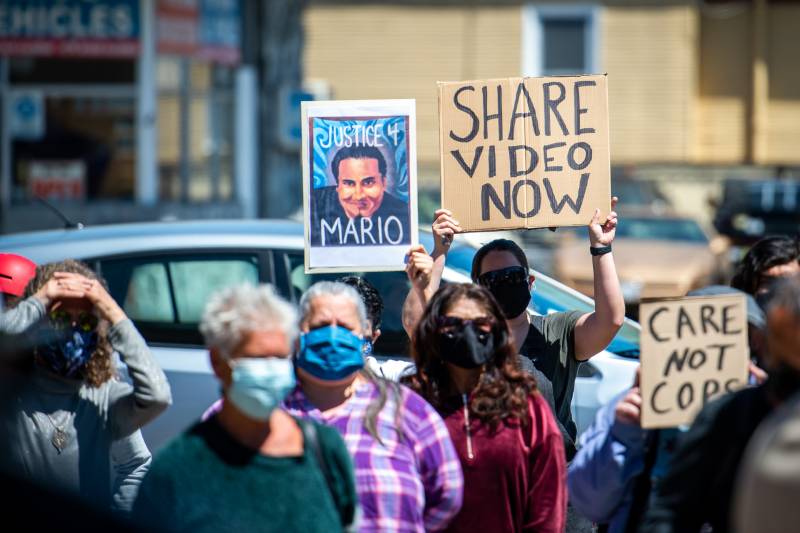Gonzalez, who weighed about 250 pounds is seen grunting and shouting as he lies face down on wood chips while the officers restrain him. One officer puts an elbow on his neck and a knee on his shoulder.
One officer also appears to put a knee on his back and leaves it there for about four minutes as Gonzalez gasps for air, saying, “I didn't do nothing, OK?"
Shortly before he stops breathing, one officer asks the other: “Think we can roll him on his side?”
The other answers, “I don’t want to lose what I got, man.”
After Gonzalez seems to lose consciousness, the video shows officers rolling him over and performing cardiopulmonary resuscitation. They are also seen administering at least two doses of Narcan, which is given to counteract opiate overdoses. Gonzalez was pronounced dead at a hospital.
“Anyone with common sense will ask like how does someone with no preexisting chronic medical conditions suddenly have a medical emergency at the age of 26 and die, just out of the blue,” Jerry Gonzalez said.
Gonzalez had a 4-year-old son, also named Mario, and was the main caretaker of his brother, who has autism and turned 23 on Tuesday, his family said.
Eugene O’Donnell, a former New York City police officer and professor of police studies at New York’s John Jay College of Criminal Justice, said that as in the incident that led to Floyd's death, “what's at stake is so small."
Officials nationwide are reassessing whether counselors rather than police should deal with people who are intoxicated or suffering a mental health crisis. O'Donnell said the Alameda case was an instance in which police "have to take care of these issues that should not be their issues."
Geoffrey Alpert, a professor of criminology at the University of South Carolina and an expert on police use of force, said officers should have rolled Gonzalez over as soon as they could.
“Once they’re controlling him, as we learned from the Floyd trial with all those medical experts, this position or compression is deadly,” he said.

